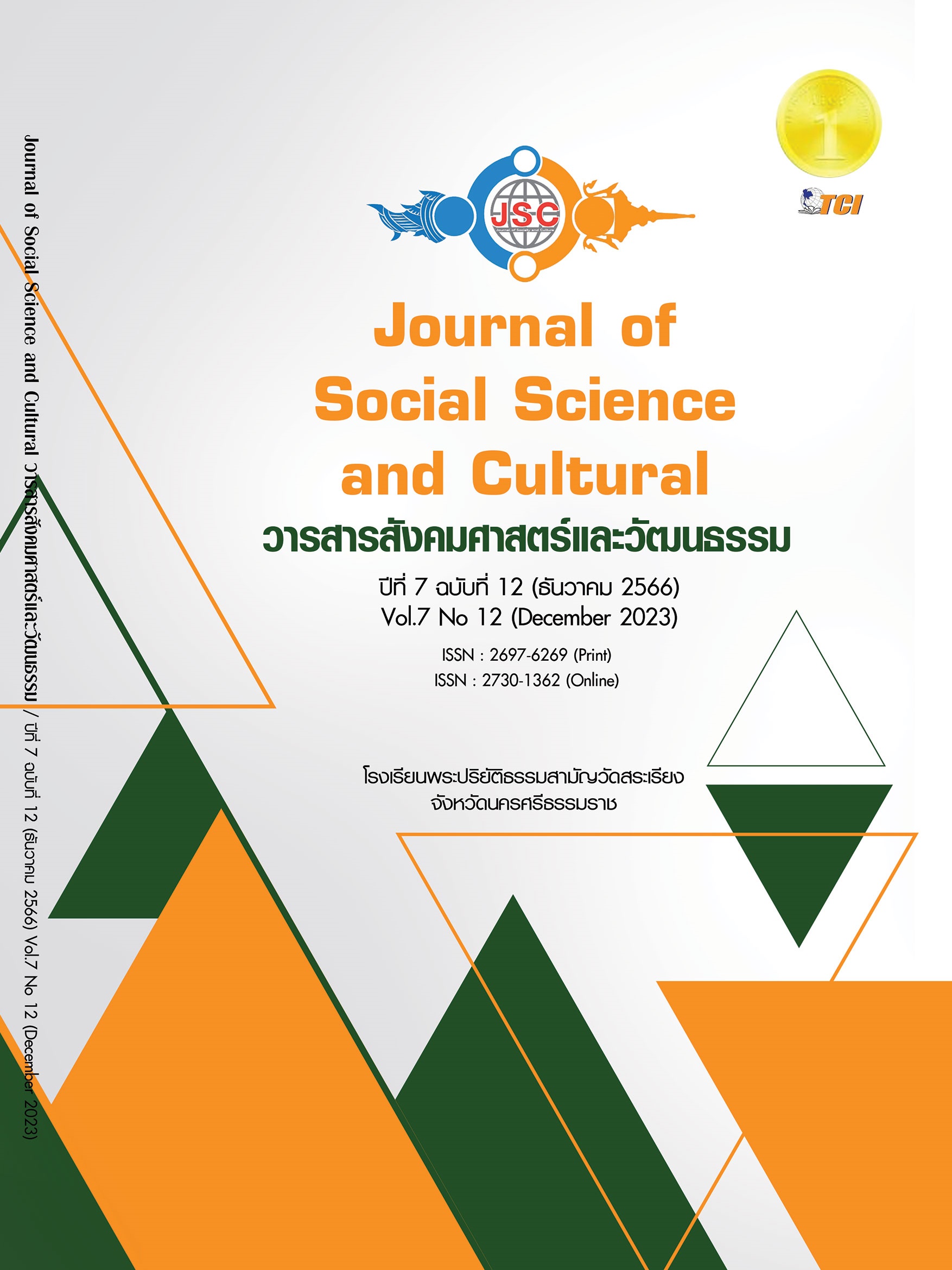THE DEVELOPMENT OF THE FACTORS AND INDICATORS OF ALGEBRAIC THINKING FOR PRATHOMSUKSA 6 STUDENTS
Main Article Content
Abstract
According to the results of the national and international assessments, it was found that grade 6 students' results in mathematics tests were lower than the standards especially problem solving and giving reasons in mathematics which corresponds to the nature of algebraic thinking. Algebraic thinking is a process of analyzing problem situations that use the information received as a basis. Students are able to build relationships, connect, and apply processes to solve problem situations in many ways in order to use a variety of representation to the problem situation and give reason appropriately The objectives of this research were to 1) develop the factors and indicators of algebraic thinking 2) examine the quality of factors and indicators of algebraic thinking. A sample group included 5 expert lecturers in field of mathematics or teaching mathematics who were chosen by purposive sampling. The research instruments used to collect data were a semi - structured interview and the effective of factors and algebraic thinking evaluation. The research data were analyzed by content analysis, IOC, mean and standard deviation. The results revealed that 1) factors and indicators of algebraic thinking of sixth grade students consisted of three main factors; 1) solving problem 2) using representative and presentation 3) giving reasons, eight sub main factors and 8 indicators of algebraic thinking 2) the experts rated the overall quality of the factors and indicators of algebraic thinking of sixth grade students had an IOC value of 0.80 - 1.00, indicating that the factors and indicators of algebraic thinking were consistent and met the standards.
Article Details
References
กระทรวงศึกษาธิการ. (2560). มาตรฐานการเรียนรู้และตัวชี้วัดกลุ่มสาระการเรียนรู้คณิตศาสตร์ วิทยาศาสตร์ และสาระภูมิศาสตร์ ในกลุ่มสาระการเรียนรู้สังคมศึกษาศาสนา และวัฒนธรรม (ฉบับปรับปรุง พ.ศ. 2560)ตามหลักสูตรแกนกลางการศึกษาขั้นพื้นฐาน พุทธศักราช 2551 ตัวชี้วัดและสาระการเรียนรู้แกนกลางกล. กรุงเทพมหานคร: โรงพิมพ์ชุมนุมสหกรณ์การเกษตรแห่งประเทศ.
วันวิสา พุทจิระ. (2559). การจัดการเรียนรู้ตามแนวคิด Model Method เพื่อพัฒนาการคิดเชิงพีชคณิตของนักเรียนชั้นประถมศึกษาปีที่ 5. วารสารศิลปากรศึกษาศาสตร์วิจัย, 8 (1) , 328 – 343.
วิษณุ นภาพันธ์. (2551). การศึกษาลักษณะการให้เหตุผลเชิงพีชคณิตของนักเรียนระดับประถมศึกษาตอนปลาย. กรุงเทพมหานคร: บัณฑิตวิทยาลัย มหาวิทยาลัยศรีนครินทรวิโรฒ.
สถาบันส่งเสริมการสอนวิทยาศาสตร์และเทคโนโลยี. (2562). ผลการประเมิน PISA 2018 :บทสรุปสาหรับผู้บริหาร. กรุงเทพมหานคร: สถาบันส่งเสริมการสอนวิทยาศาสตร์และเทคโนโลยี (สสวท.) กรุงเทพมหานคร.
Booker, G. & Windsor, W. (2010). Developing algebraic thinking: Using problem - solving to build from number and geometry in the primaryschool to the ideas that underpin algebra high school and beyond. Procedia - Social and Behavioral Sciences, 2010(8), 411-419.
Cai, J. (2004). Why do US and Chinese students think differently in mathematical problemSolving? : Impact of early algebra learning and teachers’beliefs. The Journal of mathematical behavior, 23(2), 135-167.
Driscoll, M. (1999). Fostering algebraic thinking: A guide for teachers, grades 6 - 10. London: Heinemann.
Greenes, C. & Findell, C. (1999). Developing Students’ Algebraic Reasoning Abilities. In In Developing Mathematical Reasoning in Grades K-12. Edited by Lee V. Stiff and Frances R.Curcio (pp. pp.127-137). Reston, Virginia: The National Council of Teachers of Mathematics.
Herbert, K. & Brown, R. H. (1997). Patterns as tools for algebraic reasoning. Teaching Children Mathematics, 3(6), 340-344.
Lee, L. (1997). Algebraic understanding: the search for a model in the mathematics education community=Lacomprehension algebrique: la recherche d'un modele dans la communaute d'education mathematique. Montréal: Université du Québec à Montréal.
Lew, H. C. (2004). Developing algebraic thinking in early grades: Case studyof Korean elementary school mathematics. The Mathematics Educator, 8(1), 88-106.
Matos, A. S. & Ponte, J. P. (2009). Exploring functional relationships to foster algebraicthinking in grade 8. Quaderni di Ricerca in Didattica, (Matematica 2(19), 1-9.
National Council of Teachers of Mathematics. (2016). Background Paper and Brief for the development of anew Primary Mathematics Curriculum. Nonthaburi: NCCA.
NCTM. (2000). Principles and standards for school mathematics. Reston: Virginia: NCTM.


